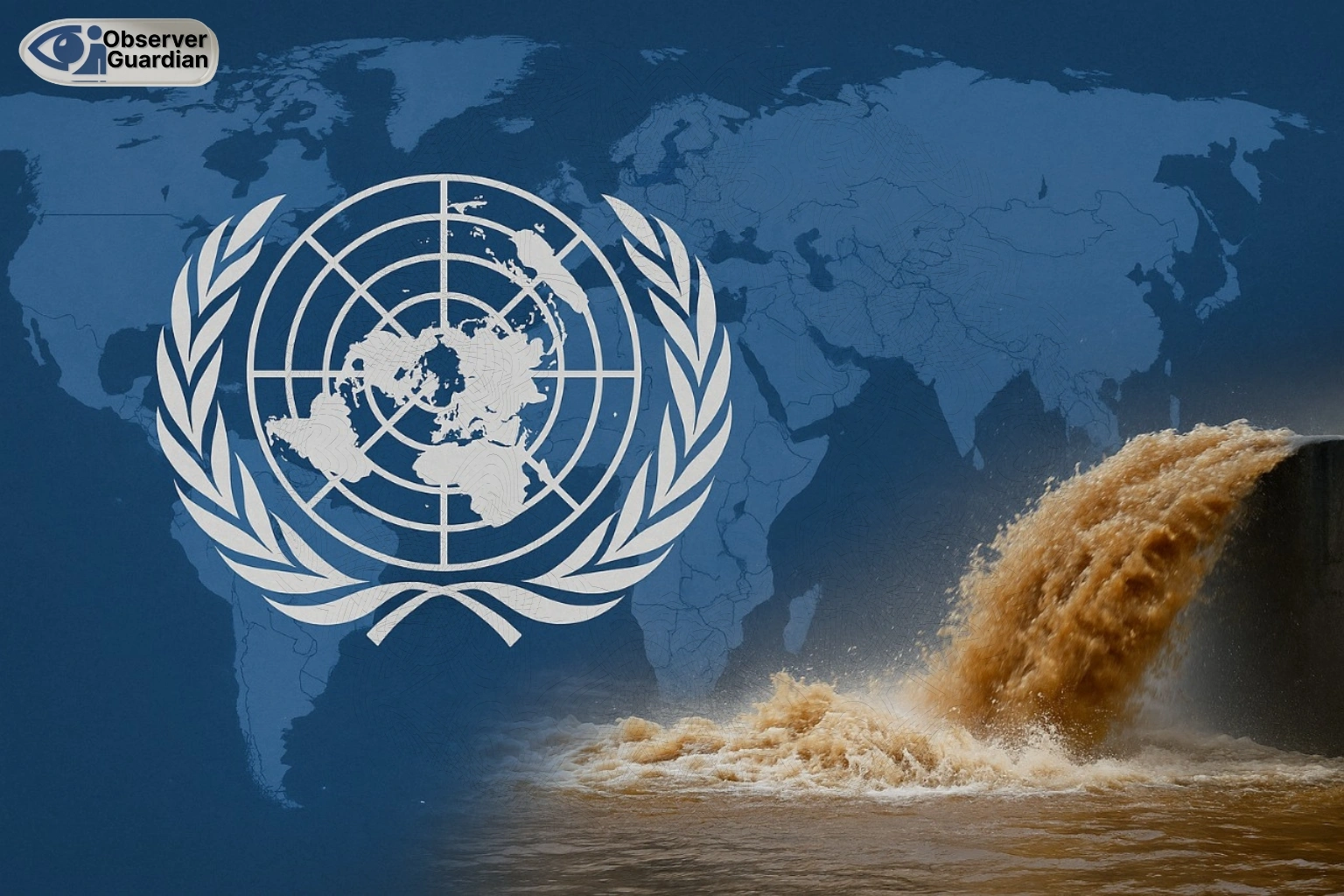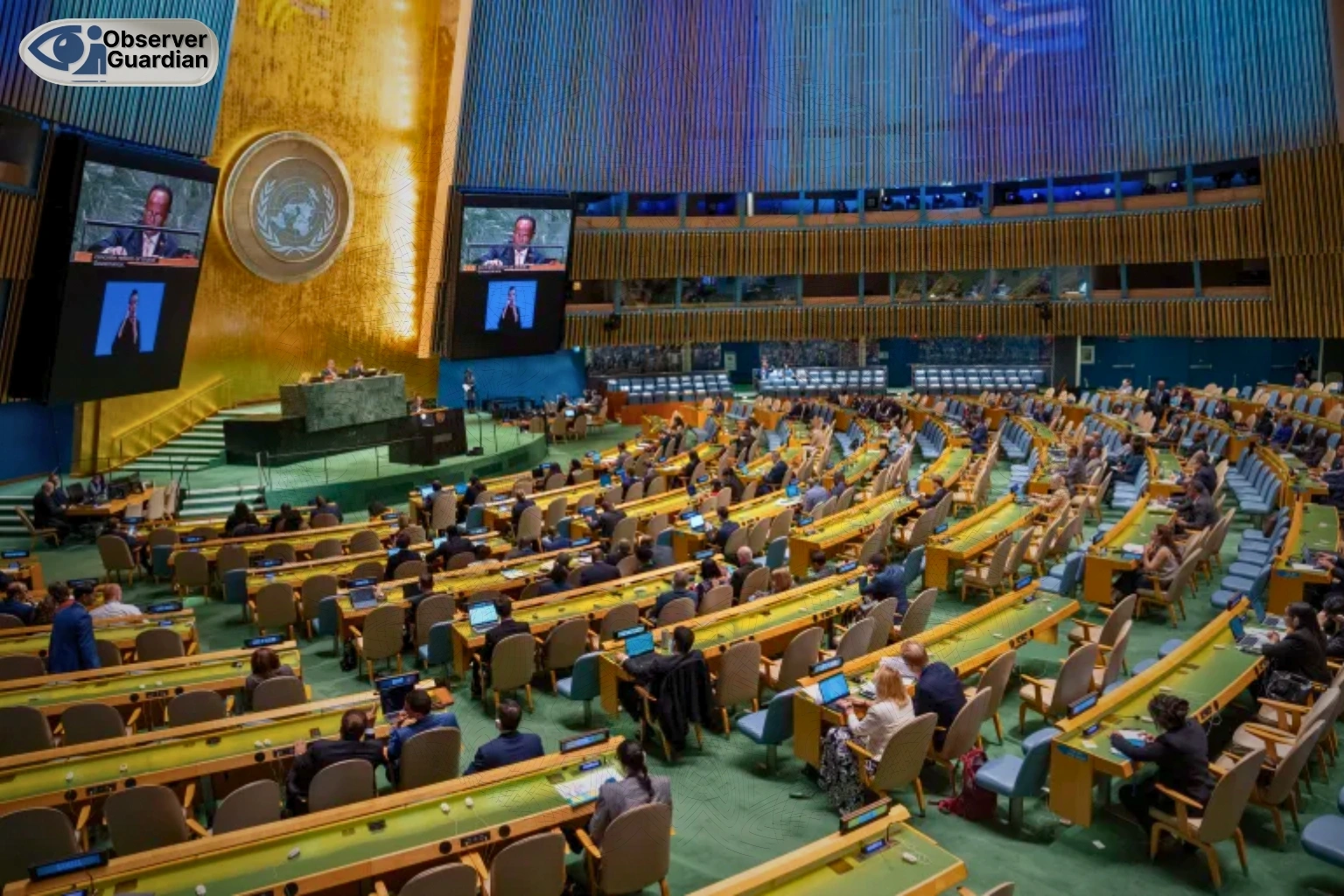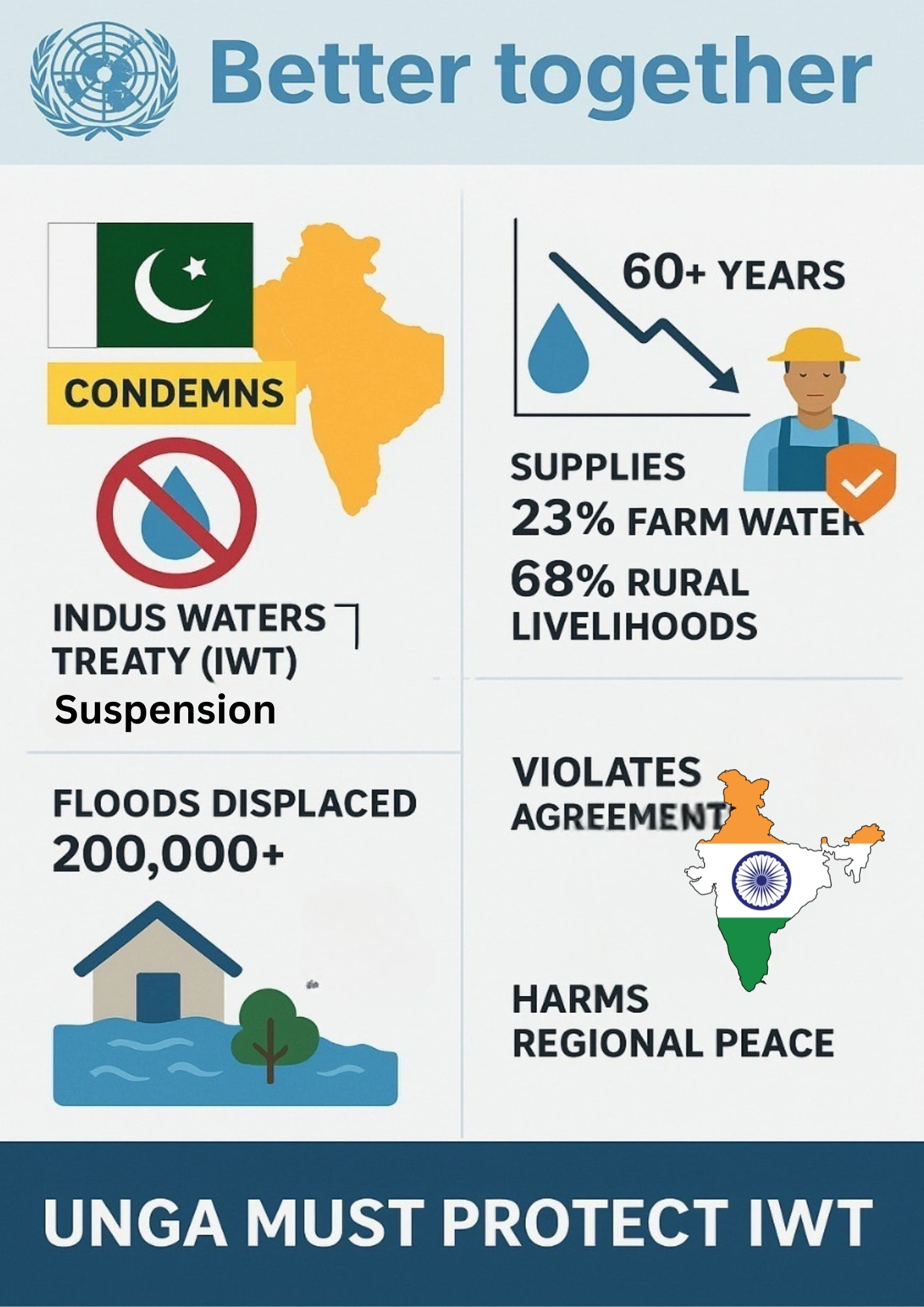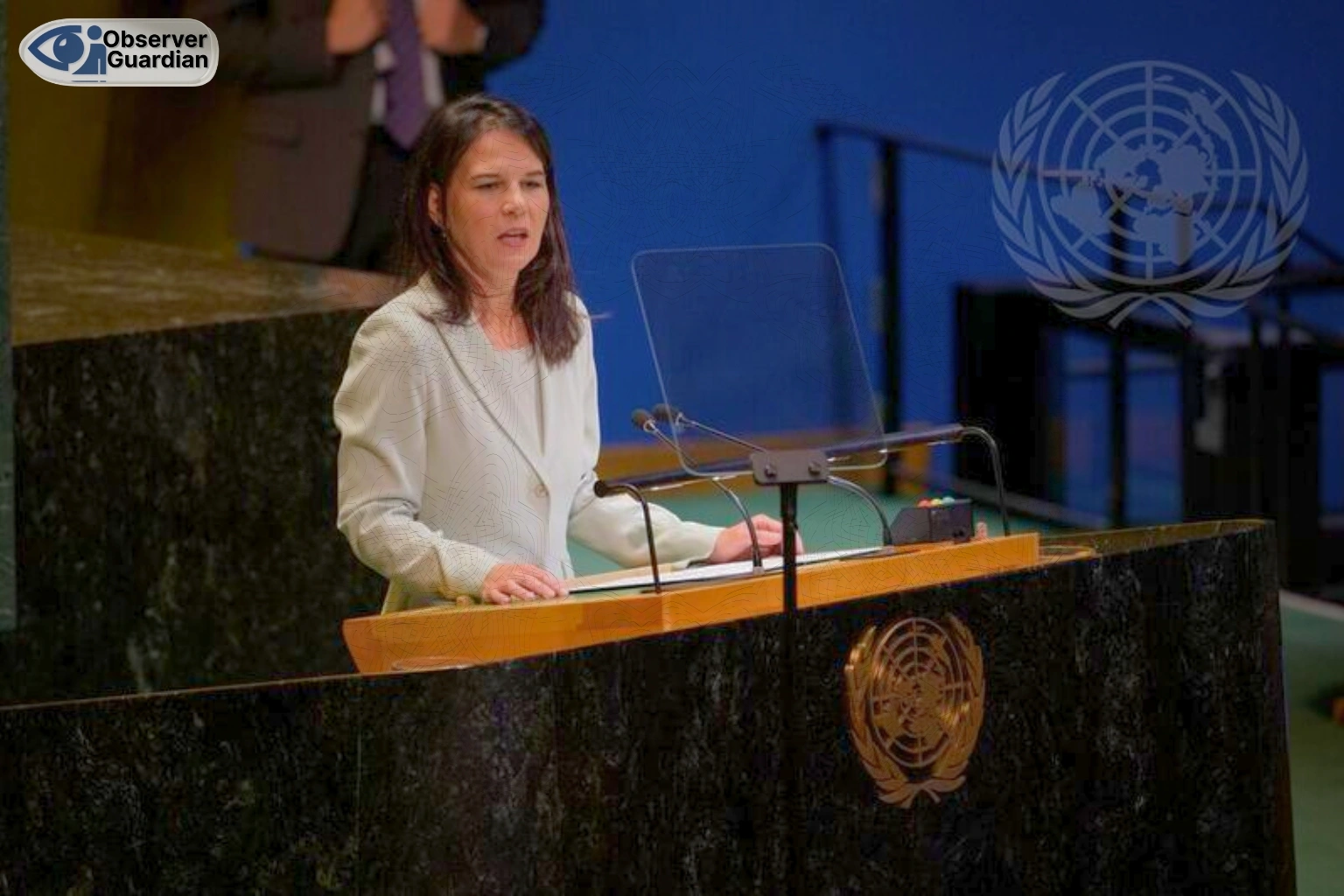Will Unity Survive Global Crises?
The 80th session of the United Nations General Assembly (UNGA) began on 9 September 2025. Its theme is Better together 80 years and more for peace, development and human rights. So, it is about world unity. It demands common responsibility. It requires countries to prefer collaboration to coercion. To Pakistan, this session reminds that these words must not ring hollow, they must be matched against peace destructive actions.
Contradiction in Practice
Pakistan is confronted with a sharp paradox as the world assembles to talk about cooperation. Its neighbouring country India has weaponized water. Likewise, this is a move against peace. It erodes regional confidence. Moreover, it is directly opposed to the call of the UNGA that is named Better together. In lieu of shared responsibility, there is unilateralism. Coercion is in place of cooperation.

The Indus Waters Treaty (IWT) was concluded in the year 1960. It passed through wars, crises and diplomatic freezes. However, it was a symbolic gesture of collaboration between two nuclear possessive adversaries. For six decades, it endured. In May 2025, India withdrew from the treaty, and this was a serious upgrade. Water is a fundamental human need which was turned into a weapon of pressure.
Weaponization of common resources is discouraged by international law. It is the purpose of treaties to end outside political wrangles. The IWT should not be suspended. For doing so, it would signal that even binding agreements can be discarded.
This not only sabotages the Pakistan state but international confidence in international norms is jeopardized as well. The discard of one treaty may be followed by others.
Implication on Lifelines of Pakistan
The Indus River system is a lifeline to Pakistan. It fulfills 23 percent of the agricultural water requirements in Pakistan. It sustains close to 68 percent of rural lives. Significantly, its uninterrupted flows sustain the lives of millions of people. Also, farmers rely on it for crops and for drinking purposes and food security is threatened by any interference. Any deficiency will breed economic turmoil. In Pakistan, water scarcity is not an illusion. It is an impending humanitarian crisis.

The aggression of India has assumed a new shape. Water was silkily released on 26 August 2025 out of overfilling dams. It spilled into the low lying boundaries of Pakistan. The result was devastating. Over 200,000 people were displaced. 900 lives were lost. Punjab was devastated with crop lands. Livelihoods were shattered. This was not cooperation. It was water as a weapon.
Nations should be joined together by shared resources. They must by no means be made instruments of coercion. India puts lives and trust in jeopardy by controlling the movements of water.
There is nothing to do with natural calamity. As it concerns action that is willed. Sadly, it is transforming rivers into engines of revenge. This acts like killing the spirit of being a neighbor.
The Wider Consequences
Water insecurity is unfenced. It spreads. It fuels migration. It creates tensions. It deepens poverty. Such manipulation is irresponsible in South Asia where millions of people already experience the consequences of climate stress. It threatens regional peace. It threatens to take two nuclear nations further into confrontation. This escalation cannot be overlooked in the world.
The UNGA must take notes. Pakistan is not only safeguarding its survival by the IWT. In fact, it concerns the safeguard of the concept of equitable water sharing. It concerns respect of international standards.
Accepting the unilateral suspension will make the UNGA sound empty when it promises to be Better together.
Water is not a weapon. It is right. Access to water is considered by the United Nations itself as a fundamental human right. The deprivation or even endangering of millions of people through political intention is inhuman. It is contrary to the spirit of peace and human rights. It is not justifiable on any pretext.

A Test of Global Principles
Suspension of the IWT is not a local problem. It is an examination of international values. Can treaties be safeguarded? Is it possible to share resources even handedly? Is it possible to end unilateral coercion in the world? These are the questions to be answered by the UNGA. Otherwise, the damage will extend well beyond South Asia.
This year UNGA Better together is about peace, development and joint futures. Yet the wording is only as good as the actions. The test is real and immediate in the case of Pakistan. Its rivers are witnessing the turning into weapons. It is costing its people.
The fact that India is weaponizing water is in contrast with the goals of unity by the UNGA. The IWT and irresponsible dam releases suspension are aggressive activities. They threaten lives, livelihoods and peace in the region. They weaken international law. They ridicule the notion of Better together. The situation of Pakistan is not just theirs. It is a warning for the world. The UNGA must act. It must demonstrate that treaties are important, human rights are important and that peace is not just a word.
Disclaimer: The views and opinions expressed in this article are exclusively those of the author and do not reflect the official stance, policies, or perspectives of the Platform







